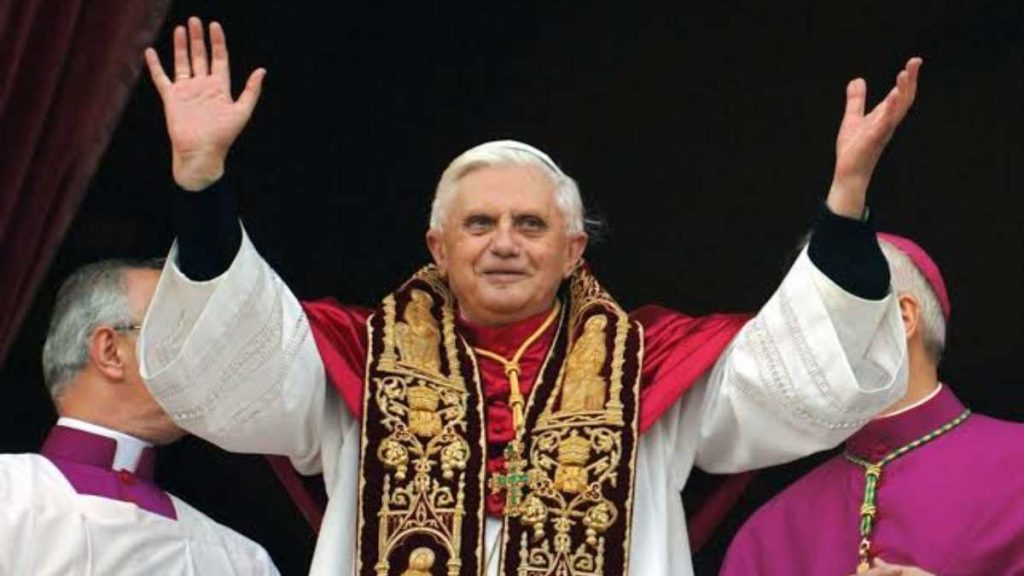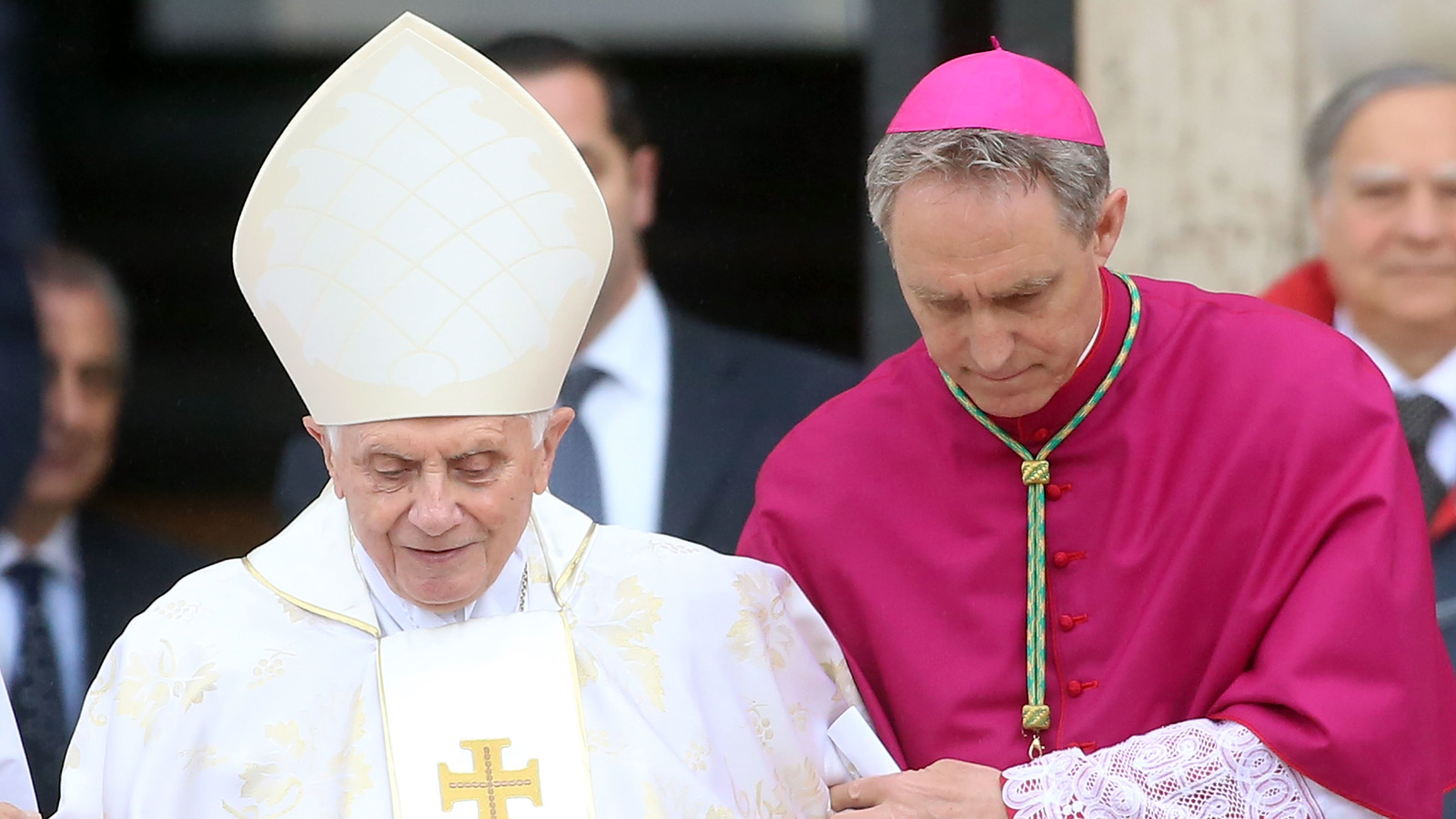Pope Benedict XVI Net Worth
Pope Benedict XVI, born Joseph Aloisius Ratzinger on April 16, 1927, served as the 265th Pope of the Roman Catholic Church from 2005 to 2013. During his papacy, he made significant contributions to the Catholic Church and its followers, emphasizing traditional values and engaging in interfaith dialogue. Unlike many public figures, Pope Benedict XVI’s net worth was not driven by financial gains or personal wealth accumulation but was shaped by his role as a spiritual leader and his commitment to a life of service and simplicity. This article will explore the factors that shaped his financial situation, how he managed his resources, and his overall impact on the Catholic Church and the world.
- Early Life and Journey to the Papacy:
Pope Benedict XVI’s journey to the papacy began in his early life. Born in Marktl am Inn, Bavaria, Germany, he was raised in a devout Catholic family. His interest in theology and faith led him to pursue a career in the priesthood. He was ordained as a priest in 1951 and later became a prominent theologian and professor of theology in various institutions. His theological writings and teachings garnered significant attention and respect within the Catholic Church
Pope Benedict XVI Net Worth
- The Papacy and Financial Aspects:
When Cardinal Joseph Ratzinger was elected as Pope Benedict XVI on April 19, 2005, succeeding Pope John Paul II, he assumed a position that carried significant influence over the world’s largest religious institution. However, the Vatican’s financial structure is quite different from a typical wealthy organization or individual.

2.1. Papal Finances and Personal Wealth:
Pope Benedict XVI, as the Supreme Pontiff, did not possess personal wealth in the traditional sense. His life of service and commitment to his spiritual duties meant that he did not accumulate wealth during his time as Pope. The Vatican provided for his needs, ensuring he had housing, transportation, and necessary personal expenses. Popes typically live a modest lifestyle, avoiding extravagance and ostentatious displays of wealth.
2.2. Vatican Wealth and Finances:
While the Pope himself does not have a personal net worth, the Vatican City, as a sovereign entity, has its financial assets. It operates as an independent state and has its sources of revenue, including donations from the faithful, income from investments, and revenue generated by cultural and religious activities within the Vatican.
- Pope Benedict XVI’s Stance on Wealth and Materialism:
Throughout his life, Pope Benedict XVI consistently advocated for the importance of living a simple and humble existence. He believed that wealth and material possessions should not be the focus of one’s life, emphasizing the spiritual value of selflessness, compassion, and charity. He encouraged Catholics to prioritize the well-being of others and to seek a deeper connection with their faith.

- Impact on the Catholic Church:
During his papacy, Pope Benedict XVI faced various challenges within the Catholic Church, including addressing sexual abuse scandals and fostering interfaith relations. His leadership emphasized a return to traditional Catholic values, appealing to conservative members of the Church. While some appreciated his efforts to preserve tradition, others criticized his approach as being less open to progressive ideas.
- Retirement and Post-Papacy Life:
On February 28, 2013, Pope Benedict XVI surprised the world by announcing his resignation, becoming the first Pope to do so in over 600 years. He cited his advanced age and declining health as the primary reasons for stepping down from the papacy. After his resignation, he adopted the title “Pope Emeritus” and returned to a life of seclusion within the Vatican.
- Continuation of a Simple Lifestyle:
Following his retirement, Pope Benedict XVI maintained his dedication to a simple lifestyle. He resided in the Mater Ecclesiae Monastery within Vatican City, devoting his time to prayer, study, and writing. His choice to live in the monastery highlighted his commitment to a life of spiritual contemplation and detachment from worldly possessions.
- Literary Contributions and Intellectual Legacy:
Despite his retirement, Pope Benedict XVI continued to contribute significantly to the Catholic Church and the world through his writings. He authored several books and essays on theology, faith, and spirituality. His intellectual legacy continues to inspire both Catholics and non-Catholics alike, fostering a deeper understanding of religious principles and their relevance in the modern world.

Conclusion:
Pope Benedict XVI’s net worth cannot be measured in monetary terms, as his life and legacy revolve around principles far greater than material wealth. As a spiritual leader, he dedicated his life to service, simplicity, and the pursuit of spiritual growth for himself and others. His teachings and contributions continue to impact the Catholic Church and the world, emphasizing the importance of compassion, humility, and the pursuit of higher values. Pope Benedict XVI’s legacy will undoubtedly endure as a testament to the power of faith and the ability to lead a life of profound influence without monetary riches.
|
Read Also: Biography
|
|
Follow at: Instagram
|














